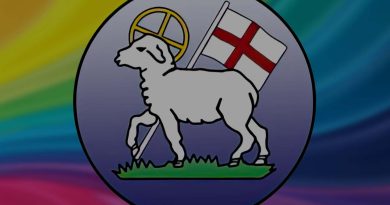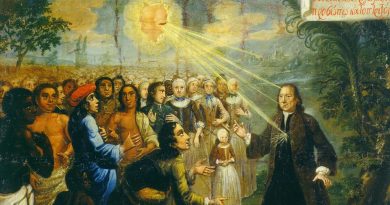Moravians, the Bible, and Cultural Differences
by the Rev. Dr. Revocatus Meza
Since time immemorial, from the time of the Ancient to the Renewed Moravian Church, pietism has been blending our spirituality. The Bible has been the key tool towards defining our belief in Christ; the Moravians worldwide are known to have successfully synthesized the differences that could have arisen with members from different geographical locations regarding their interpretation of the biblical texts reflecting their cultural values, preconceptions based on the standards and customs that have shaped their spiritual worldview. It should also be understood that our worldviews and Bible readership have changed from the time of John Comenius to Zinzendorf in comparison to the Moravian faithful in the twenty-first century.
The motto of the Moravian Church: “In essentials, unity; in nonessentials, liberty; and in all things, love,” speaks volumes in making sure we remain faithful to the word of Christ that needs us to remain one and united by casting out the differences that emerge from assuming that the world we know is the norm for every other world which can eventually result into simply forcing preexisting meanings onto the text and leading to interpreting the word of God to only what we expect to find the meaning that suits our own interest reflected from the contexts we live in.
…the word of Christ that needs us to remain one and united by casting out the differences that emerge from assuming that the world we know is the norm for every other world
I am therefore sharing my brief personal creed in reference to the global Moravian Church to emphasize from individual to the whole Church to engage in Bible readership that also invites the Holy Spirit to be our teacher and thus illuminate our understanding of the texts. The daily Bible readership practice would lead to growing spiritually and help us to avoid some members’ spiritual malnutrition which normally forces great exodus of our members to the churches which provide rigid answers to the unanswered spiritual questions we fail to address. The Church is tasked to be responsible for adhering to what has been glorifying Jesus Christ as the Chief Elder of our Church reckoning him as the center of all the teachings we extend to the rest of the world and the Bible being the key to all our basis of our spirituality.
We will always need to complement with others ideas and reflections based on their spiritual experiences.
From my understanding, I have come realize that no single idea is sufficient by itself; we will always need to complement with others ideas and reflections based on their spiritual experiences. We need each other regardless of our various orientations — be it gender, race, spiritual maturity or immaturity — as long as we are all representing the image of God. Wherever you are reading your Bible from — Africa, North and South America, Europe or Asia — are all a connected whole. I am an African Bible reader and interpreter of the Bible and I might find difficult to understand some of the biblical interpretation which would refer to a different cultural context than the one I grew up in. However, I am responsible to have always seen the importance of respecting other individuals’ contexts and experiences when it comes to giving the interpretation of the biblical texts that lead to setting their spiritual lives as long every reading of Scripture is an act of interpretation. It should be understood that we must distinguish between Scripture and our own interpretation of Scripture! We should be encouraged as Moravians to live holistically in the sense that understanding of our own lives has to reflect the social dynamics we undergo for the sake of getting along with integration with people who are different from our belief as a whole but remaining faithful to our Christian faith articulated in the Moravian Church.
We cannot ignore the rapid social changes facing our world today that have a direct impact to our spiritual welfare thus readership of the Bible could be affected should one ignore the foundation set by our church predecessors as mentioned in the first paragraph of this reflection.
Jesus as the Head of the Church makes a special call to all his followers to humble themselves before him.
Likewise, Jesus as the Head of the Church makes a special call to all his followers to humble themselves before him despite their church designations (be it bishops, pastors, church elders, or lay members) have respectively same weight spiritually and commissioned to make disciples and tend the flock.
As we may all know, Moravians sought everything in the Bible as far as interpretation of the biblical passages is concerned and aimed at making sure that nothing is misinterpreted, misquoted, or taken out of context in a way which could distort the intended meaning of the cited passages. A bishop, a pastor, church elder, a lay member should read the Bible aiming at growing spiritually and extend it to others who have little or no knowledge concerning the word of God. We are all called to serve as ambassadors of Christ by taking the Gospel to the rest of the world.

In another development that is related to the ideas which could help us as Moravians to access the Bible and enhance personal interpretation of the book, we can embrace the tradition which was initiated in 18th century which encourages the Bible readers to use the Moravian Daily Texts as it apprehends individual words from the Bible as God’s present voice speaking to its corporate life as well as the lives of the individual believers.
The Rev. Dr. Revocatus Meza is a Tanzanian Moravian who has studied at Moravian Theological Seminary in Bethlehem, PA. He received his PhD at Leipzig University in Germany, and is now teaching at Teofilo Kisanji University (TEKU) in Mbeya, Tanzania.
Featured photo © Skypixel | Dreamstime.com



